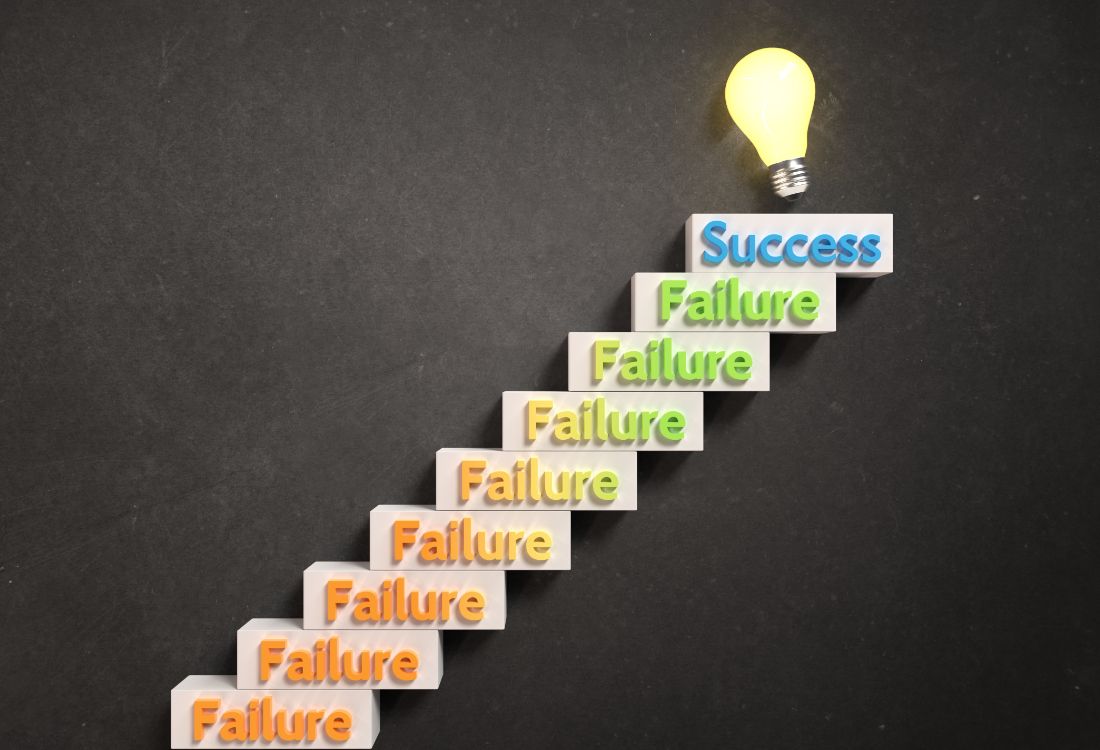
Why is embracing failure key to success?
Typically, failure is perceived as a negative. As children we’re taught to avoid it in education, sport and performance and this fear of ‘getting it wrong’ continues into our adult working lives. The negative connotations lead to workarounds, hiding mistakes, blaming others, not taking chances and a vast array of issues that hold organisations back. Yet, failure also allows us to continuously learn, and it is the only true path towards innovation and success.
In organisations, we have found that there tends to be two kinds of people: those who make mistakes and admit to those mistakes, and those who lie or cover up their mistakes. This is usually impacted by the organisation’s culture and whether they are likely to embrace failure and turn it into a positive.
The fastest way to learn, grow and succeed is to fail - a lot! Our role in learning and development is to create a safe space for people to put skills to the test, make some mistakes and learn from them in order to improve their performance back in the workplace. As Thomas Edison said – “I have not failed. I’ve just found 10,000 ways that won’t work.”
While success will mean different things to different people, some of the most successful people have failed time and time again to be the great people they are today. Here are the ways in which failure can make us stronger and more successful if we let it.
Failure fosters humility
The best leaders are most often humble leaders. Failure fosters humility, which is not only necessary for leadership but for self-improvement. Leaders need to accept that they can’t know everything, be aware of and acknowledge their own limitations and seek to surround themselves with people who have complementary skills and ideas.
Failure builds resilience
When failure knocks us down, the hardest part begins. We must pick ourselves up and fight to move forward. Each circumstance teaches us a little bit more and allows for us to come out a different person than we walked in. Coming back from failure teaches us resilience, and resilience is the one quality all successful people have in common.
Failure encourages us to think differently
Whilst problem-solving, it can be difficult to pre-plan and account for every aspect of the problem beforehand. Failure encourages better thinking. It forces you to look back and ask, why didn't that work? What went wrong? How can we improve?
Instead of letting failure win, we can look back at the choices we made and track how to redirect new choices for a better outcome. We are then able to move forward with new knowledge, understanding that we have the power to change our future for the better.
Failure instils a growth mindset
The best way for us to instil a growth mindset is to normalise failure. By accepting that it’s normal to make mistakes, we can then learn that it is not an ending but rather, the beginning of learning.
There is a growing acceptance from leaders in business that failure is a prerequisite to innovation and that a breakthrough isn’t possible if risks aren’t taken.
When it comes down to the individual there is an assumption that there will be a loss of esteem and credibility, which could be seen as embarrassing at best, or career damaging at worst. Breaking down ‘fear of failure’ barriers and training people to develop a growth mindset and understand that it’s part of their development will be essential if businesses want to make the most of the opportunities that exist.
Fail fast, learn fast
The experiential learning environment we have created at our two UK outdoor leadership centres are designed to provide a safe space that invites people to experiment, to try new things and step out of their comfort zone. Whether it’s leadership skills, improving collaboration and team effectiveness or strengthening resilience, we have a wide range of physical and non-physical challenges to support development.
To find out more about our experiential learning approach to leadership and team development, please call us on 01962 587217 or email enquiries@gra.uk.com.
Image Source: Canva



